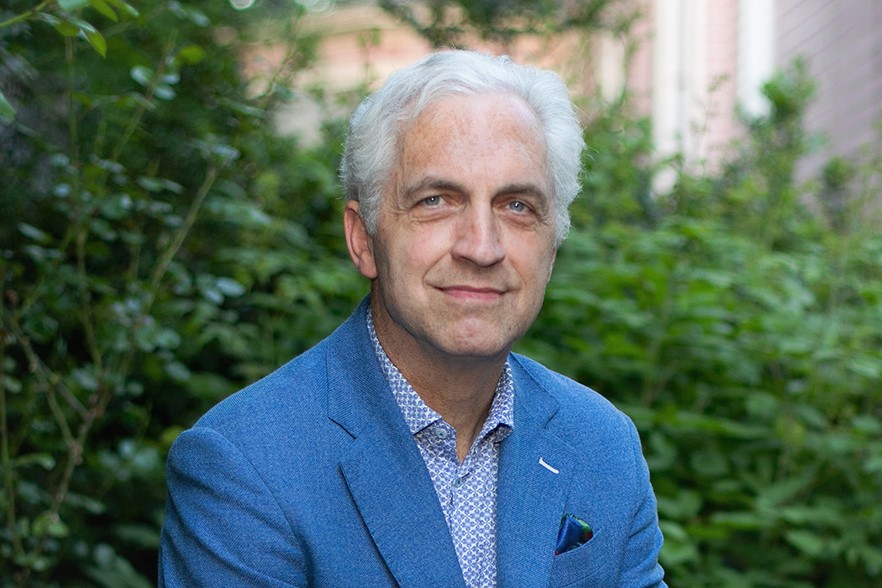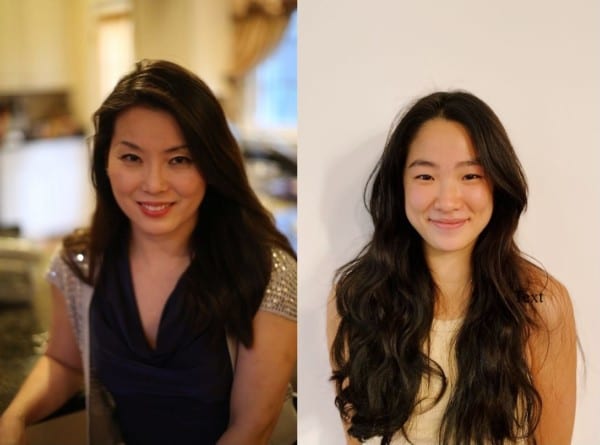When Jeffrey Jensen Arnett applied the term “emerging adults” to the young people he was studying in the 1990s, he didn’t just change terminology, he challenged society’s perception of an entire generation and what was expected of it. The term, connoting transition, was made famous by Arnett’s 2000 article in American Psychologist, “Emerging Adulthood: A Theory of Development from the Late Teens through the Twenties.” The title related to the categorical gap he identified in interviewing hundreds of young people, who, despite their adult age, consistently reported feeling as though they had not yet reached adulthood.
The response to the article within the academic community was a career-defining moment for the young psychologist who was hoping to make an impact. Arnett went on to write several books on related subjects and taught for many years at the University of Missouri and the University of Maryland. He is now an independent scholar at Clark University and leads the Society for the Study of Emerging Adulthood.
In many ways, Arnett’s work is even more relevant today as reports of the mental distress of people in their late teens and twenties raise questions about societal pressure and a lack of resilience within a generation that we have yet to fully understand. In this candid interview, Arnett provides insightful commentary on what is perhaps the most important decade of our lives, and, while including their struggles, gives us a sense of optimism about today’s twentysomethings.
MCI: How did you come to the conclusions that motivated you to coin the phrase “emerging adults?”
Arnett: I was in my early 30s and was feeling, for the first time, like an adult. I was looking to do something no one had done before. So, I decided I was going to study people in their 20s and ask them all sorts of questions. But one of the most important questions I asked them was, “Do you feel like you’ve reached adulthood?” I asked all kinds of people, not just college students – poor, rural White people, Black Americans, Asian Americans – and that led to some fascinating answers. Across groups, they certainly didn’t see themselves as adolescents, but they also didn’t yet see themselves as adults, with some exceptions.
In the course of hundreds of these interviews I did in the 1990s, I came to the conclusion that we really needed a new way of thinking about this age group. They were not simply living a “prolonged adolescence,” because they were not going through puberty, they were not in secondary school, they were not minors under the law, and they were not dependents of their parents, except in rare cases. On the other hand, they did not have the range of responsibilities usually associated with adulthood. I felt like we needed a new concept for this age group, so I proposed “emerging adulthood.” I wrote it up in a paper that was published in American Psychologist and it became this amazing thing.
MCI: Why do you think it took off like it did?
Arnett: Because it made such intuitive sense to people. I wasn’t the only one searching for a different way to describe this group. If you called them “late adolescents,” or “young adults” or “youth” – each of these terms is vague and ambiguous. So, calling them “emerging adults” gave people a way of talking about them and describing them that had a distinctive new meaning that made sense. Terminology matters. Changing the terms also encouraged people to get around some of the judgement of this group that was happening at the time. It destigmatized the twenties by describing it as a period of transition. At the time, there was a lot of complaining about people in this age group – “Why don’t they grow up? This generation is so infantile.” I just found that unnecessarily pejorative. One of the things that I tried to do, and had some success doing, is making people understand it’s not a failure to launch; it’s something new and it’s complicated, and it’s a good thing in many ways.
This time period is really very distinct. Adult life is full of duties and responsibilities. And childhood is, too. You don’t get to make many choices in childhood like where you’re going to live, where you’re going to school. You have chores that are assigned to you. Your parents decide where the family’s going on vacation. In contrast, when you reach the twenties, this is the one decade of your life where you have the broadest range of freedom and individual choice. And we don’t need to deplore it and compare it to other generations from a time that no longer exists in America. The new life stage of emerging adulthood comes out of long-term changes in the economy and in education and in how we’re viewing sexuality and cohabitation in relation to marriage.
The ways the twenties have changed should also change the expectations that we have for people that age. We’re affluent enough as a society that we don’t really need their labor until they’re fully ready, and they’ve had time to become educated and trained to do something useful in the new economy. It’s not like the old days where we sent kids to the field when they were six years old or factories when they were nine. We don’t need kids to do that anymore. The choice of a marriage partner and a long-term direction in work comes along with a more established identity, and for most people, that takes until about at age 30 to achieve.
MCI: Are today’s twentysomethings different than other generations from a brain development perspective?
Arnett: It’s complicated, because I think when most people talk about the brain and their interpretation of brain research, what they don’t realize is that brain development is not just genetic and biological development, it is also a response to your environment and your experiences. If we were to look at young people’s brains in the early 20th century, they would be different than they are now because of the different experiences people had and the responsibilities they took on. Today, brain development in the twenties is different because our experiences are different. There’s a lot of talk now about how people’s brains don’t become “mature” until age 25, but that’s nonsense. Wouldn’t every 50-year-old say they know more at age 50 and have better judgment than they did at 25? So, the claim that people’s brains mature at 25 today seems absurd to me, and I think most people would agree. I think every society recognizes that people’s judgement improves throughout their adult life. It is why we don’t elect presidents who are 25.
MCI: There are so many implications to your theory, starting with encouraging people to take their time and find themselves. Would you say that’s true?
Arnett: Yes. We have gradually moved, as a society, to where we can afford to let people find their way in their twenties and take their time, and that is a good thing. We should let people in this time period “relax,” and I say this as a dad who finds it difficult to relax! I tell my 21-year-old twins there is really no hurry. Enjoy your emerging adulthood. I was a complete knucklehead at 21 which I’m pleased to say my kids are not. But I think as parents, we want our kids to make progress toward adulthood in their twenties, but most of us know it’s best for our kids not to hurry into adult responsibilities before they’re ready. We would be horrified if our kids had a much earlier timetable, whether they were to get married at 20 or have a kid at 22 or stop their education and go to work at 16. Almost no parents these days would want that, even though a couple of generations ago that was normal.
MCI: Speaking of parents, there’s a lot of judgement out there about over-parenting and coddling adult children. What are your thoughts on that as it relates to your work with emerging adults?
Arnett: I think what you’re describing is what psychologists now call “intensive parenting.” Researchers are using that term now to describe parents being very involved in their kids’ decisions and having goals for them from an early age, like going to go to this school or being at this level of accomplishment. And then they’re going to go to this university and they’re going to major in this or that. It’s kind of a mixed bag for kids. It’s true, some parents overdo it and push their kids too hard. But in my experience, it’s not necessarily bad for parents to be involved in their kids’ lives unless it’s really in extreme. The emerging adults I’ve seen who struggle the most tend to be ones whose parents don’t care. They are at the other extreme. We sometimes forget this. There are a lot of parents out there who, by the time their kids get into their 20s, they’re thinking, “Look, I got my own life to live, get out of here and figure things out on your own.”
That can be tough for emerging adults. I think most of them need and want that closeness to their parents, especially if they don’t have a close romantic partner, which most of them don’t. They tend to have brief relationships, so they need their parents. But at the same time, they feel very ambivalent about their parents’ advice. On the one hand, they respect their parents’ judgment. They mostly love their parents and feel close to them. They want to be able to talk to them about things and hear what their parents think, but they also don’t want their parents making the decision for them.
One of the things that I tried to do, and had some success doing, is making people understand it’s not a failure to launch; it’s something new and it’s complicated, and it’s a good thing in many ways.
The three criteria for adulthood that have come up over and over again in studies that I began doing in the 90s come from the question, “What do you think makes a person an adult?” Well, “accepting responsibility for yourself” is always number one. But number two, very consistently, is “making independent decisions.” And then number three is “becoming financially independent.” The making independent decisions piece is really important. And that means that even if emerging adults respect their parents’ judgment, and even if they realize that they might make the wrong decision, they would still prefer most decisions to be their own decisions. So, there’s this push and pull regarding parental involvement.
MCI: This is a critical time for mental health, with many young people reporting high levels of distress. What are your observations in that regard?
Arnett: The longer transition to adulthood that emerging adulthood represents has advantages and disadvantages. People get more time to figure out who they really want to be and what direction they want to go in. But because it’s not very structured, some people get lost or they experience mental health issues that can be debilitating. It can also be a very lonely decade. You leave home and you leave the cocoon of parental warmth, love, and concern, and it’s liberating in a way. You can stay out as long as you want; you don’t have to explain it over the breakfast table the next day.
That freedom has its advantages, but it often comes along with this loneliness where you feel like you’ve left those close relationships with your parents – if you had close relationships – and it’s difficult to find anything that matches that. Even if you have a lot of friends, you’ll miss having someone who loves you enduringly, deeply, and unequivocally, the way parents often do. In adulthood that’s really tough to do without until you find a partner that you really feel that from, so I think there’s a lot of loneliness in this decade. I think that’s actually something that should be studied more.
MCI: Do you think some level of anxiety and depression are standard conditions when you are trying to figure out who you are?
Arnett: I do. Anxiety and depression are absolutely provoked by these identity struggles that almost all emerging adults go through. They go through it in education, they go through it in work, in their romantic relationships and their religious beliefs, in their philosophy of life. The mental health problems can be serious for some and we need to be vigilant about identifying when someone needs help. But it can be very productive and creative as well.
I think anxiety can actually be a positive emotion, though we rarely think of it that way. It is a real motivator. If you feel anxious, you’re thinking about your future, and you’re concerned if you don’t know what you’re going to do. That anxiety can motivate you to do something new, make a plan, move to a new city. It’s only a bad thing when it becomes debilitating and leads you to become paralyzed or doubt you can do anything, so you just stop trying.
Also, we need to remember that anxiety, stress, and depression can co-exist with more positive emotions. You can be asked on a survey question, “Have you experienced high anxiety in the last week?” and you’d say yes. But if you were asked, “Have you had an exhilarating experience in the last week?” you might also say yes. Have you had times when you were with your friends and you felt great? Or you had a great conversation with your mom and you learned something fascinating?
We need to keep in mind that there is a lot of joy in emerging adulthood, too. There’s often a feeling of exhilaration in these years that is so distinct and harder to come by when you get older. I think it is partly physiological. The hormonal intensity of the 20s is one of the things that contributes, in a social and cultural context, to the higher highs and lower lows people experience during this period. Taylor Swift said it well in her song “22” where she talks about what it’s like to be this age. “We’re happy, free, confused and lonely at the same time.”
MCI: Last question. Is social media the end of the world as we know it?
I could literally talk about this all day. I would say two things which are probably contradictory, but I hope to get to the complexity of this. First of all, panic about new media is something that has occurred for a long time. Before any social media came along, it was radio, and movies, and television, and so on. Even in the early 20th century, before there were any electronic media, G. Stanley Hall wrote about the perils of dime novels, and how alluring they were. And he feared that the generation of adolescents he was studying were going to be corrupted by them. Now it seems like nonsense, right?
There was similar thinking about radio and the jazz that was delivered over it in its early days; that was going to ruin a whole generation. And, of course, there were multiple panics about television and how that was going to make us all into idiots. There were a lot of dire things written about movies in the mid 20th century. And then there was heavy metal music and other rock music of the ‘60s, ‘70s, ‘80s, ‘90s. So that means to me, we should be watchful about the effects of any new media but skeptical, too, about claims of how dangerous it is. A certain amount of the panic over it is likely to be just getting used to it and the way it changes our own lives, and the way it changes communication and how stories and ideas are delivered.
That said, and maybe this is generational, I do sometimes fear that, with social media, it’s gotten to this point where it is so excessive that it is damaging to relationships. I saw a statistic recently where a sample of emerging adults looked at their phones like 200 times a day, which I don’t think is exaggerated. Their phones are constantly beeping, or buzzing, or making some noise because some new thing has come in, either from a friend, or a news source, or some celebrity they’re following. It takes up a lot of their time. I see it with my own kids. It’s so tempting for us to judge it, but when you think about it, it’s not inferior to the way the typical adult of my generation spends the evening, watching TV. Will they grow out of their obsession with their phones in their thirties when they have families and careers to attend to? That’s a good question. We’ll see.




